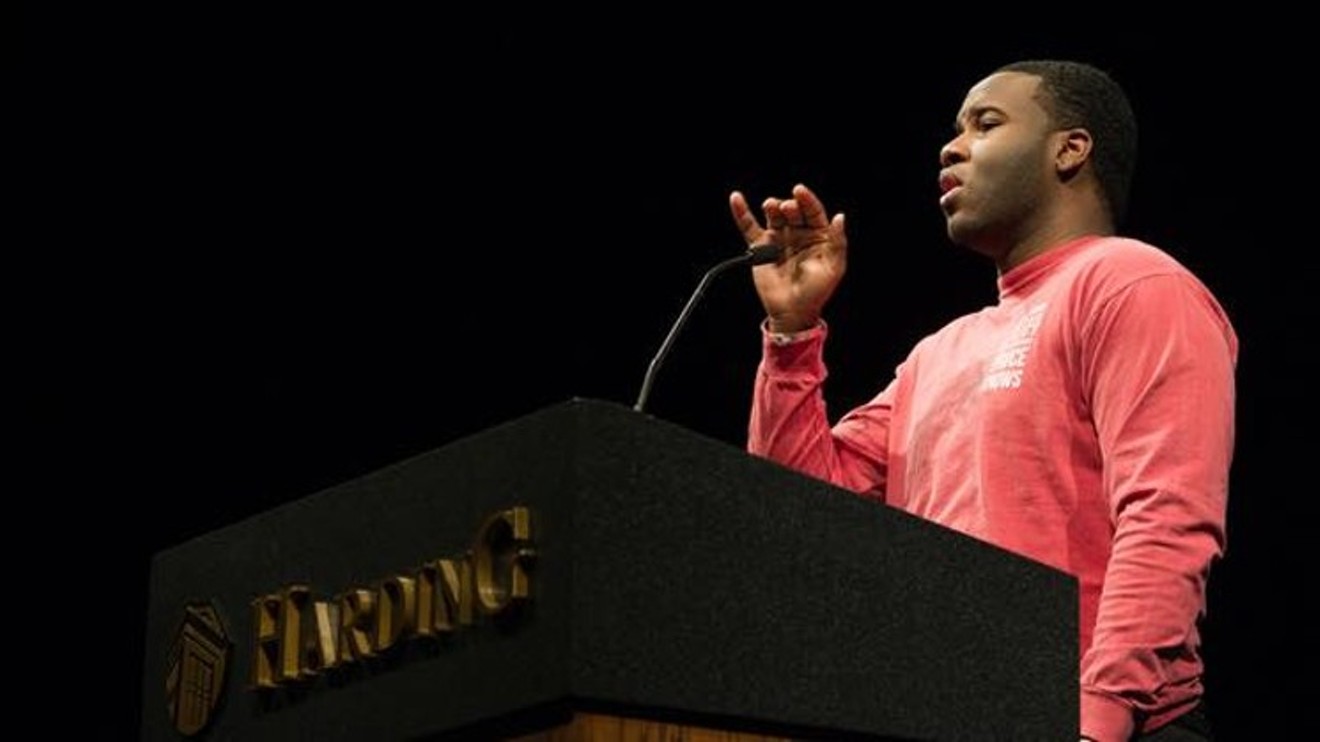Monday, a Dallas County grand jury heard evidence in the case against Amber Guyger, the former Dallas Police Department officer who shot and killed Botham Jean. What the grand jury heard or who they heard it from isn't known — grand jury proceedings are secret — but attorneys for Jean's family tipped off the media that it heard something. The 12-member body will continue to hear evidence today, according to multiple local outlets. Jean's family, the attorneys said, are in Dallas and ready to testify should they be asked to do so.
"This is an indictment that's highly anticipated," Jean family attorney Lee Merritt told reporters at the Dallas County Court House. "Not only is his family anticipating [the grand jury's decision] but the world is watching. This is a very important decision for Dallas County."
The grand jury in the case has, essentially, three decisions it can make. It can charge Guyger with murder, although she has told authorities she shot Jean in his own apartment after she entered it by mistake, thinking it was hers. She thought Jean was an intruder. Incoming Dallas County District Attorney John Creuzot has indicated support for a murder charge. The jury could also elect to charge Guyger with a lesser crime, like manslaughter, or not to indict her at all — a decision known as "no-billing" the accused.
According to Dallas criminal defense attorney Pete Schulte, only two of those decisions are supported by the apparent facts in the case.
"If there is an indictment, it will be a murder indictment," said Schulte, a former Dallas County prosecutor. "I don't think there's any in-between. At the time the force was used — because that's what we look at in all criminal cases, whether it's a police officer or anybody else — when the force was used, her intent was an act clearly dangerous to human life. She fired a gun in the direction of a person she knew was standing in front of her."
For a grand jury to indict Guyger of manslaughter, the crime with which she was initially charged by the District Attorney's Office, it would have to believe she was behaving recklessly — as she would have been if she'd fired into the apartment through a closed door — rather than intentionally, Schulte said.
Any indictment, however, is not guaranteed. If the grand jury believes that Guyger reasonably believed she was in her apartment when she shot Jean, it could elect not to indict her based on the mistake-of-fact doctrine, according to Schulte.
"If they believe that, she's entitled to a no-bill," Schulte says. "She's entitled to a no-bill if the grand jury believes, with all the facts presented — and this is the same way they do all these grand jury referral cases — that she has a defense that a rational jury at a jury trial would not be able to disbelieve."
However the grand jury might eventually make up its mind, it isn't clear that a decision is imminent, as several Dallas media outlets have suggested.
"I think it was premature. There is no indication [that the District Attorney's Office was making its final presentation to the jury] yesterday. ... Because the process is secret, you really have no idea," Schulte said. "For anybody to speculate is inappropriate. It doesn't do anybody any good."
Prosecutors often use grand jury proceedings to investigate before they make their final presentation, Schulte said.
"Just because that grand jury's hearing witnesses doesn't mean that they're presenting the case," Schulte said. "If you're trying to conduct an investigation where you're not issuing search warrants that would become public when the return is filed, you do it through the use of a grand jury subpoena because that's secret until there is, or if there is, an indictment."
The Dallas County District Attorney's Office declined to provide any details on the proceedings but did tell the Observer that Dallas County grand juries operate on Monday-Wednesday-Friday and Tuesday-Thursday schedules.
[
{
"name": "Air - MediumRectangle - Inline Content - Mobile Display Size",
"component": "18855504",
"insertPoint": "2",
"requiredCountToDisplay": "2"
},{
"name": "Editor Picks",
"component": "17105533",
"insertPoint": "4",
"requiredCountToDisplay": "1"
},{
"name": "Inline Links",
"component": "18349797",
"insertPoint": "8th",
"startingPoint": 8,
"requiredCountToDisplay": "7",
"maxInsertions": 25
},{
"name": "Air - MediumRectangle - Combo - Inline Content",
"component": "17105532",
"insertPoint": "8th",
"startingPoint": 8,
"requiredCountToDisplay": "7",
"maxInsertions": 25
},{
"name": "Inline Links",
"component": "18349797",
"insertPoint": "8th",
"startingPoint": 12,
"requiredCountToDisplay": "11",
"maxInsertions": 25
},{
"name": "Air - Leaderboard Tower - Combo - Inline Content",
"component": "17105535",
"insertPoint": "8th",
"startingPoint": 12,
"requiredCountToDisplay": "11",
"maxInsertions": 25
}
]













